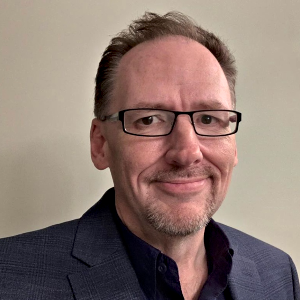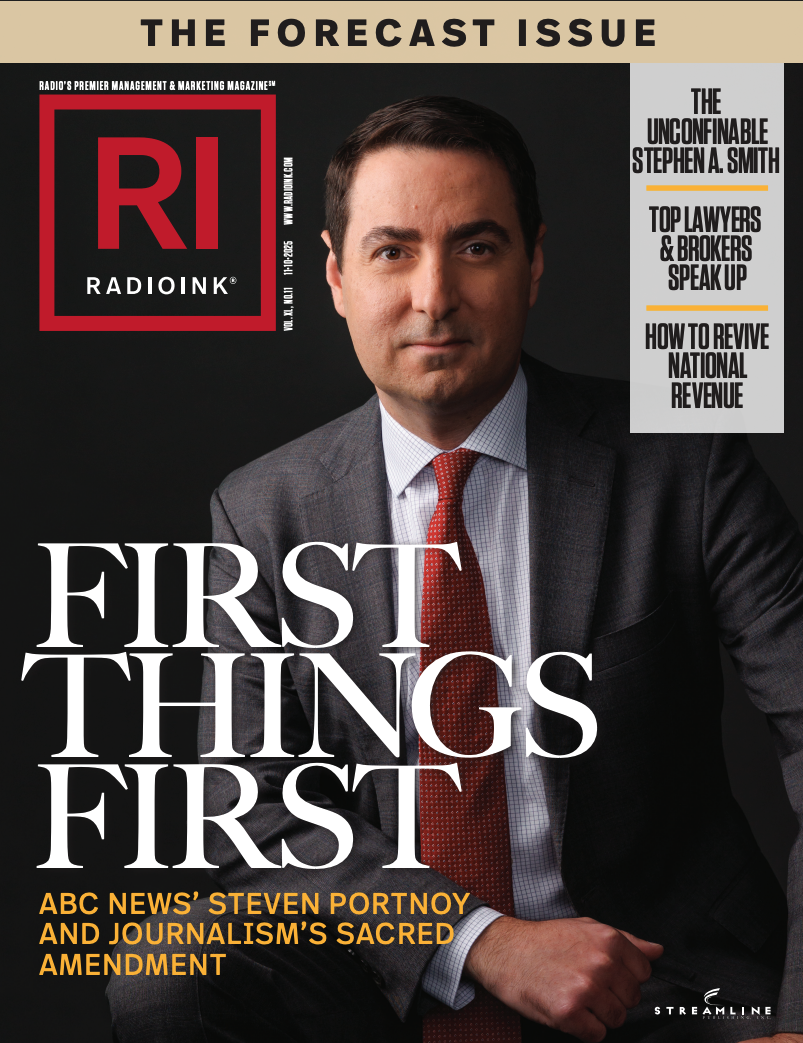
You have likely taken in a significant amount of information about the Utah Valley University shooting over the last week, including a wide variety of opinions across social media platforms after the fact. Perhaps you’ve also heard directly from local listeners on your own on-air (depending on your format and local performance policy).
Despite being a radio talent himself, you may think Charlie Kirk’s death doesn’t have anything in common with your own local on-air personalities, but I encourage you to significantly reevaluate this more closely now.
Our local radio personalities work in the public influence space. Unlike the past, that space now has an outbound and an inbound lane. Feedback can now be more unexpected than ever. For that reason, we are less alone than we have ever been.
I am confident that Charlie Kirk and his entire organization felt safe with his security at these campus events. If you’ve seen the event footage, you likely saw that his security was in close proximity. He wasn’t expecting the unexpected, but the unexpected happened.
In radio today, we don’t live and work in the same kind of place we lived and worked in two weeks ago. Maybe we haven’t for a longer time than we might want to admit. However, now is the time to look at the work that goes into your personality appearance policy for their safety.
As we have surely seen, people are emotional and emotions can get away from people faster than you anticipate. We’ve seen this in everything from road rage to politics in modern American society.
Local radio stations need to have policies in place to consider the safety and welfare of our on-air talent in potentially vulnerable situations.
Please consider your existing policies. If you don’t have a policy around public safety in situations as diverse as public appearances, coming in and out of your physical broadcast plant, you might consider:
Safety Policy for Local Radio Talent
General Principles
- Professional Accessibility, Not Personal Vulnerability: Talent should be approachable at events, but must never compromise their personal safety for access.
- Always Assume Visibility: Anything said or done in public or on-site may be recorded or shared. This content can also be misunderstood, so consistent standards can be put in place to avoid this as much as possible.
- Public Access to Performance Should Be Limited: Gone are the days when personalities should be alone or unaware of the potential dangers in our open society today. If possible, it should be considered that personalities should not be alone in public settings anymore.
Building & Studio Access
- Secure Entrances: All studio entrances should remain locked. Staff access only via coded entry cards, fobs, or keypads.
- Escort Policy: If a guest or contest winner comes into the studio, they should be signed in, badged (temporary visitor ID), and escorted at all times.
- Arrival/Departure Awareness: Talent should avoid entering/exiting alone late at night. If working unusual hours, request a security escort or buddy system.
- Parking Safety: Provide well-lit, secure parking close to building entrances. Encourage staff to check their surroundings before exiting vehicles.
Public Appearances & Events
- Pre-Event Briefing: Station staff should know the event layout, exits, and where security or police are stationed.
- Security Presence: At larger or high-traffic events, at least one security guard (or trusted staffer assigned to shadow talent) should be present.
- Boundaries: Talent should avoid sharing personal contact information, personal social accounts, or discussing where they live.
- Meet & Greet Controls: Organize orderly lines, barriers, or staff supervision so fans approach one at a time. No unsupervised meet-ups.
- Alcohol & Substances: Talent should avoid being placed in situations where they are pressured to drink excessively or lose control in public. Our talent are in public settings enough where these things are present. In no way should talent be engaged in behavior-adjusting substances.
Online & Caller Interactions
- Privacy: Talent should never share personal phone numbers, emails, or addresses. Use station channels for communication.
- Harassment Protocol: Any threatening messages (email, social, call, or in person) must be reported immediately to management and, if necessary, law enforcement.
- Documentation: Keep records/screenshots of concerning behavior for future reference and report them. This should be a well-known policy.
Crisis Protocol
- Immediate Threat: If someone confronts talent aggressively in public, talent should disengage, move to safety, and alert security and law enforcement.
- In-Studio Disturbances: Staff should not attempt to personally eject hostile visitors. It should be a well-known policy to call security or law enforcement rapidly in these situations.
- Emergency Contacts: Maintain an internal emergency contact list with management, security, and local law enforcement liaison info.
Training & Awareness
- Annual Safety Briefing: All talent and promotions staff should go through yearly safety training.
- Roleplay Scenarios: Practice handling aggressive fans, stalkers, or unexpected public encounters.
- Mental Wellness: Encourage talent to talk to management about concerning interactions rather than ignoring them.
You might think some of this prep is over the top, but today’s world has changed. There’s always room for the unexpected. Harm coming to your air talent or staff is not worth the time saved by not putting simple measures in place to help keep people on your team safe.
The best safety policy balances visibility and connection with the audience (which is vital for local radio talent) while ensuring boundaries, structure, and professional protection.







I think back on some of the pubic events we staged at conservative talk radio last decade. All of our hosts in the same space, same time. Security was always front and center.
Could an event like that even be imagined today? Not likely.
Loyd,
I used to work in law enforcement, and you’re hitting on some important awareness points. I always carry, but this definitely sharpens my sense of caution. Like the old saying goes: ‘Better to have it and not need it than to need it and not have it.’ Praying God keeps us all safe and ready.
Excellent column with suggestions that should be taken seriously and discussed internally. Thank you for this Loyd.
Sad but the following morning, I was packing my 9mm. That’s something i would have never done before.
Comments are closed.